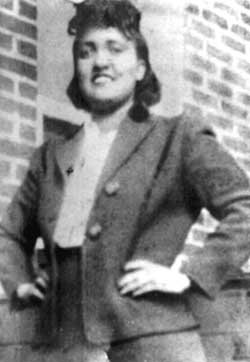Honoring Henrietta Lacks
In recognition of Black History Month, we take a moment to honor Henrietta Lacks and her invaluable contribution to modern medicine - the HeLa cell line.
Henrietta Lacks was a 31-year-old African American who was diagnosed with and treated for cervical cancer at Johns Hopkins Hospital in 1950. Unfortunately, her treatment for this terrible disease was unsuccessful and Ms. Lacks passed away in October 1951.
The HeLa cell line’s remarkable history began when a sample of cells was taken from Henrietta Lacks without her or her family's knowledge or consent. While the cells were taken for cancer research purposes, it soon became apparent that they had unique properties: they were immortalized, meaning they could be kept alive and propagated indefinitely. This discovery was groundbreaking, as previous attempts to culture human cells had been unsuccessful. The HeLa cell line has become indispensable for biomedical research, contributing to the development of life-saving vaccines - including those preventing polio and HPV-related cervical cancer. Further, it has aided in our understanding of how HIV causes disease. HeLa cells are now ubiquitous, with trillions of cells in laboratories worldwide focused on biomedical research.
This photo shows a culture of HeLa cells, a type of human cell line used in medical research.
However, despite its importance to medical science, the Lacks family was not informed of their mother's contribution to science for decades. In 2013, a laboratory in Germany published the HeLa genome without consulting the Lacks family. This revelation caused great distress for Henrietta's descendants, many of whom feared that their mother's sequence data could reveal their genetic traits. In response to this concern, a compromise dubbed the HeLa Genome Data Use Agreement was reached. This agreement allows two members of the Lacks family to sit on a US National Institutes of Health working group, which grants permission to access HeLa sequence information. This compromise ensures that while researchers can use the invaluable data generated by Henrietta's cells, the privacy of her descendants is respected and upheld.
Due to the outcome of Lacks's case, many nations have since established rules and regulations regarding informed consent and the protection of patient data to ensure their safety. By engaging in a dialogue with biomedical researchers, the Lacks family ensured that their mother's contribution to science could be preserved while respecting her right to privacy.
In October 2021, the incredible legacy of Henrietta Lacks was recognized with a World Health Organization (WHO) Director General's Award, where WHO director-general Tedros Adhanom Ghebreyesus said, "In honoring Henrietta Lacks, WHO acknowledges the importance of reckoning with past scientific injustices and advancing racial equity in health and science. It's also an opportunity to recognize women – particularly women of color – who have made incredible but often unseen contributions to medical science."
The story of Henrietta Lacks will continue to be remembered and celebrated for generations to come. It serves as a reminder of the importance of informed consent, ethical research practices, and recognizing the individuals whose contributions have enabled medical breakthroughs. The immortalized HeLa cell line has played a critical role in medical research, and thanks to Henrietta Lacks, the world can benefit from her legacy for years to come.


